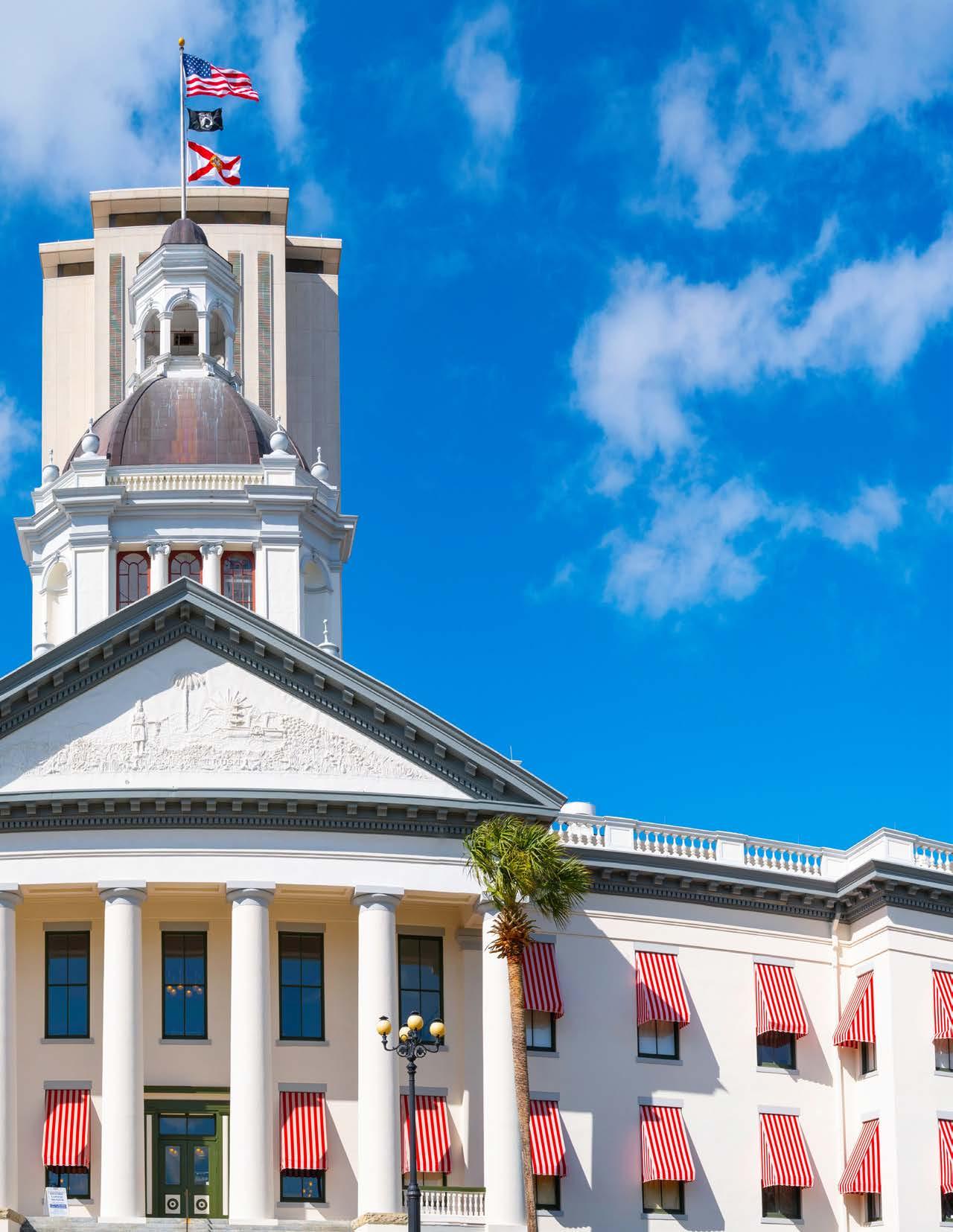
4 minute read
Legislative Update: Preparing for the 2024 Session
By Allen Douglas, Executive Director, FES and ACEC Florida
The 2024 session of the Florida Legislature will begin January 8, but note that committees have begun meeting to move bills through the legislative process. At the time this article was written, no bills filed affect the engineering community. However, there are issues and potential challenges that warrant our attention.
CEI s AND SOVEREIGN IMMUNITY
ACEC Florida has a significant concern in the recent Fourth Circuit Court ruling that CEIs working as subs to a prime consultant do not have sovereign immunity protection on public projects since there is no direct contractual relationship with the owner.
ACEC has filed an amicus brief with the Court of Appeal in hopes they will overturn the decision, but a decision is not expected until the summer of 2024. Legislation to clarify the statute is being developed by ACEC Florida to clarify that CEIs working as a subconsultant under any contract with a state or local government agency shall be protected under the sovereign immunity statute.
LICENSING REGULATIONS
On the FES side, we expect legislation will be filed similar to a 2023 legislative proposal to weaken licensing regulations for multiple professions. For professional engineers, the 2023 bill would have allowed out-of-state professional engineers to obtain a Florida license, even if they only meet two of the three requirements of a degree from an ABET-accredited program, the passage of the fundamentals and PE exams, and four years of experience.
The licensing bill is intended to make it easier for licensed professionals in other states, such as nurses, teachers, engineers and others, to obtain licensure in Florida to alleviate the worker shortages experienced in many areas. FES has been communicating with legislators involved in this effort that more than half of the licensed professional engineers in Florida reside in another state, and that PE license changes are not needed.
Over the past few years, we have seen multiple attempts to weaken, and even sunset, professional licenses. This appears likely to continue in the years to come.
CCNA EXEMPTIONS
A great concern for many Florida engineering firms is the exemption to the Consultants Competitive Negotiation Act (CCNA), which was passed during the 2023 legislative session. This exemption alters the selection process for consulting firms working with state universities, allowing price to be considered during the initial phase of procurement. While there are currently no reports of local governments pursuing a similar change, the precedent set by the state raises concerns.
Leadership of the State University System has agreed to support legislation to require a study of the projects procured post-CCNA, but that will take a few years. Multiple studies on this issue over the last 50 years have concluded that the absence of CCNA/QBS saves a small amount of money on design procurement but increases construction costs at a level far above the design savings. We believe that future studies related to state university projects will prove the previous studies correct.
PROPOSED STORMWATER RULE
In the water resources arena, the proposed stormwater rule from the Florida Department of Environmental Protection (FDEP) continues to be a policy priority. The proposal requires a minimum 55% reduction in nitrogen and 80% reduction in phosphorus on new developments and even greater reductions in impaired watersheds.
While FES and ACEC Florida members and consultants support improvements to stormwater management regulations that will benefit Florida’s water quality, we will continue to work with stakeholders to find ways to improve the cost-effectiveness of the rule. Currently, the projected cost of the rule exceeds $1.5 billion over the first five years, requiring ratification by both the House and Senate.
As the legislative session unfolds in 2024, it is imperative for the engineering community in Florida to remain vigilant and engaged in these critical matters.
Collaborative efforts, advocacy, and continued dialogue will be essential in navigating the challenges and ensuring the best outcomes for the engineering profession.







